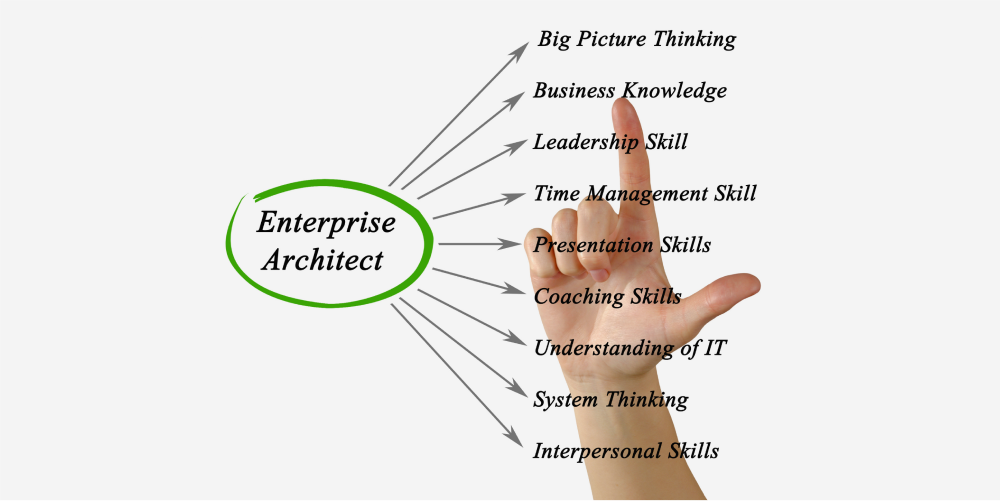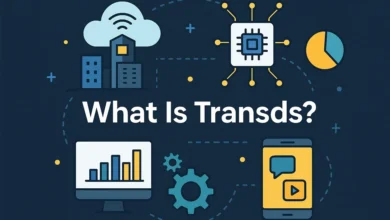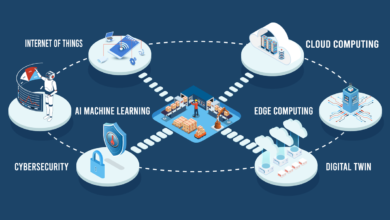Unveiling the Role of an Enterprise Solutions Consultant: Your Guide to Success in the Tech World

SEO Meta-Description:
Introduction
Ever wondered what an enterprise solutions consultant does? If you’re picturing someone in a suit, hunched over a computer, working magic with technology—you’re on the right track! But there’s so much more to the role than meets the eye. These consultants are the unsung heroes of the tech world, seamlessly blending business savvy with technical expertise to help companies thrive. So, what is the role of an enterprise solutions consultant? Let’s dive into this dynamic career and explore how these professionals drive success in today’s fast-paced business landscape.
The Basics: What Is the Role of an Enterprise Solutions Consultant?
First things first, what exactly does an enterprise solutions consultant do? At its core, the role revolves around helping businesses find the right technology solutions to meet their unique needs. These consultants work closely with companies to understand their goals, challenges, and operations, then recommend and implement software or systems that streamline processes, improve efficiency, and ultimately boost the bottom line.
Key Responsibilities
Enterprise solutions consultants wear many hats. Here’s a breakdown of their key responsibilities:
- Understanding Business Needs: Before anything else, consultants need to get a firm grasp on what the business is all about. This involves in-depth discussions with stakeholders to identify pain points and opportunities.
- Designing Solutions: Once they’ve got the lay of the land, the consultant designs custom solutions tailored to the business’s specific requirements. This might involve tweaking existing systems, integrating new software, or even developing bespoke applications.
- Implementation: After the solution is designed, it’s time to roll it out. The consultant oversees the implementation process, ensuring everything runs smoothly and that the new systems integrate seamlessly with existing ones.
- Training and Support: It doesn’t stop at implementation! Consultants also provide training to ensure that staff can effectively use the new systems. Plus, they offer ongoing support to troubleshoot issues and make adjustments as needed.
Why Are Enterprise Solutions Consultants So Important?
You might be wondering, why companies need enterprise solutions consultants. Can’t they just figure it out themselves? Well, in theory, yes. But in practice, things get a bit more complicated. Technology is evolving at breakneck speed, and staying on top of the latest trends, tools, and best practices is a full-time job in itself. That’s where enterprise solutions consultants come in—they bridge the gap between business needs and technology solutions, ensuring companies stay competitive and efficient.
Driving Innovation and Growth
One of the biggest reasons these consultants are so valuable is their ability to drive innovation. They’re constantly on the lookout for new technologies that could give their clients a competitive edge. Whether it’s implementing AI-driven analytics tools or rolling out a new CRM system, enterprise solutions consultants are always thinking about how to push the envelope.
Saving Time and Money
Let’s face it: technology projects can be expensive and time-consuming. Without the right expertise, businesses risk investing in the wrong solutions, or worse, implementing them incorrectly. Enterprise solutions consultants help mitigate these risks by guiding companies toward the most cost-effective and efficient options. Their experience ensures that projects are completed on time and within budget, delivering maximum value.
Skills and Qualifications: What It Takes to Be an Enterprise Solutions Consultant
So, you’re thinking about becoming an enterprise solutions consultant? Great choice! But before you dive in, let’s talk about the skills and qualifications you’ll need to succeed in this role.
Essential Skills
- Technical Expertise: You don’t need to be a coding genius, but a strong understanding of software development, system architecture, and IT infrastructure is crucial.
- Business Acumen: It’s not just about the tech—you’ll need to understand business operations, strategy, and financial considerations.
- Problem-Solving: Every business is unique, so you’ll need to be a creative thinker who can devise tailored solutions for each client.
- Communication: You’ll be working with people from all walks of life, so clear, concise communication is key. Whether you’re explaining a complex system to a non-tech-savvy stakeholder or negotiating with vendors, your communication skills will be put to the test.
- Project Management: From scoping out the project to managing timelines and budgets, strong project management skills are a must.
Qualifications
Most enterprise solutions consultants have a background in IT, computer science, or business. A bachelor’s degree in one of these fields is often required, and many consultants also hold relevant certifications, such as:
- Certified Information Systems Security Professional (CISSP)
- Project Management Professional (PMP)
- Certified Business Analysis Professional (CBAP)
While not always necessary, an MBA or other advanced degree can also be a big plus, especially for those aiming for senior roles.
A Day in the Life: What Is It Like to Be an Enterprise Solutions Consultant?
Now that we’ve covered the basics, you might be curious about what a typical day looks like for an enterprise solutions consultant. Spoiler alert: no two days are ever the same! Here’s a glimpse into a day in the life:
Morning: Client Meetings and Strategy Sessions
The day often starts with a meeting—or several. Whether it’s a kickoff call with a new client or a strategy session with a long-term partner, mornings are usually packed with discussions about business needs, project updates, and next steps.
Midday: Research and Solution Design
After the meetings, it’s time to get down to business. This might involve researching the latest tech solutions, sketching out system designs, or working with developers to create a prototype. Consultants need to stay on top of industry trends, so a good chunk of the day is spent reading up on new technologies or attending webinars.
Afternoon: Implementation and Training
The afternoon might be spent on-site with a client, overseeing the implementation of a new system. This could involve anything from installing software to training staff on how to use the new tools. Consultants often work closely with IT teams to ensure everything runs smoothly.
Evening: Reporting and Planning
As the day winds down, it’s time to wrap things up. This might involve writing up reports for clients, outlining what was accomplished and what’s next on the agenda. It’s also a good time to plan for the next day, ensuring that everything is on track and that no details are overlooked.
FAQs: What You Need to Know About Enterprise Solutions Consultants
What is the role of an enterprise solutions consultant?
An enterprise solutions consultant helps businesses identify, design, and implement technology solutions that meet their unique needs. They work closely with clients to understand their goals and challenges, then recommend and deploy systems that improve efficiency, streamline operations, and drive growth.
How much does an enterprise solutions consultant earn?
Salaries for enterprise solutions consultants can vary widely depending on experience, location, and industry. However, as of 2024, the average salary for this role ranges from $85,000 to $120,000 per year, with senior consultants earning even more.
Do you need a degree to become an enterprise solutions consultant?
While a degree in IT, computer science, or business is typically required, many successful consultants also have relevant certifications and hands-on experience. An advanced degree like an MBA can be beneficial for those aiming for higher-level positions.
What industries need enterprise solutions consultants?
Almost every industry can benefit from the expertise of an enterprise solutions consultant, but they’re particularly in demand in sectors like finance, healthcare, manufacturing, and retail.
Conclusion
So, what is the role of an enterprise solutions consultant? It’s a dynamic, challenging, and incredibly rewarding career that sits at the intersection of technology and business. Whether you’re helping a small startup implement its first CRM system or guiding a Fortune 500 company through a digital transformation, the impact you can have as an enterprise solutions consultant is immense. If you’re a problem-solver with a passion for technology and a knack for understanding business needs, this might just be the perfect career for you. Ready to make your mark on the tech world? Go for it!



